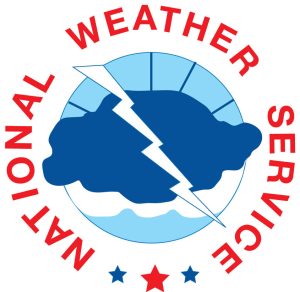
In its continued assault on science, the Trump Administration has issued a request for extensive budget cuts to be made to the National Aeronautics and Space Administration and the National Oceanic and Atmospheric Administration, calling for Congress to eviscerate the science programs of NASA by half, and NOAA’s by three-quarters. In this article we will discuss the massive cuts being proposed for NOAA, extreme measures that could cripple America’s vital climate and environmental research and life-saving weather forecasts.
Project 2025, the Heritage Foundation’s initiative for government reform that is being used as a playbook by the Trump administration, specifically calls for NOAA to “be dismantled and many of its functions eliminated, sent to other agencies, privatized, or placed under the control of states and territories, due to the document’s authors’ belief that NOAA is “one of the main drivers of the climate change alarm industry and, as such, is harmful to future U.S. prosperity.” Project 2025 also asserts that “the NWS should fully commercialize its forecasting operations.”
To that end, a passback budget request issued to Congress by the White House Office of Management and Budget (OMB) is calling for NOAA’s scientific research arm, the Office of Oceanic and Atmospheric Research (OAR), to be cut to $171 million—a mere one-third of last year’s $485 million—and to have any remaining funding from previous budgets diverted to other programs. These cuts would ensure that the “OAR is eliminated as a line office,” according to the OMB’s document itself, eliminating “all funding for climate, weather, and ocean laboratories and cooperative institutes.”
“It wouldn’t just gut [OAR]. It would shut it down.” warned former OAR director Craig McLean, who retired in 2022.
Thousands of highly-skilled personnel currently employed at NOAA’s 10 research labs across the country will be put out of work, including those at two major research facilities in Florida and Washington state; five atmospheric science labs in Boulder, Colorado, and Maryland; and the agency’s Oklahoma severe storm laboratory. The cuts would also shutter NOAA’s Geophysical Fluid Dynamics Laboratory in New Jersey and their Michigan-based Great Lakes lab.
If the request is approved, these cuts would eliminate NOAA as one of the world’s leading organizations in the effort to study climate change and, McLean adds, would set climate science back to the 1950s, simply because the Trump administration doesn’t agree with NOAA’s conclusions, based on over a half-century of scientific study.
Agency-wide, the cuts to NOAA would amount to a loss of $1.7 billion in funding: outside of OAR, the Trump administration is calling for the closure of the National Centers for Coastal Ocean Science, and for the National Ocean Service’s budget to be cut in half, with “no funding for Integrated Ocean Observing System Regional Observations, Competitive Research, Coastal Zone Management Grants, National Coastal Resilience Fund, or the National Estuarine Research Reserve System” allocated at all.
And as below, so above: as part of an effort to radically reorganize the upcoming network of next-generation geostationary weather satellites being developed by NOAA’s National Environmental Satellite, Data, and Information Service (NESDIS), cuts to the system’s atmospheric pollution and ocean color instruments have been proposed, a move that would significantly downgrading NESDIS’s role as a climate research platform to what the OMB’s request describes as “weather” satellites.
As it is with the cuts being proposed for NASA, the good news is that these budget proposals are just that—proposals—and need to be approved by Congress to become law. While the House Appropriations Committee is expected to offer resistance to the requests, the cuts may very well be passed by its counterpart in the Republican-majority Senate.
“Trump’s budget plan for NOAA is both outrageous and dangerous,” according to the United States House Committee on Science, Space, and Technology’s ranking member, Zoe Lofgren (D–CA). “This administration’s hostility towards research and rejection of climate science will have the consequence of eviscerating the weather forecasting capabilities that this plan claims to preserve.”
While the more immediate effects of these cuts will be seen in climate science, NOAA is also in charge of vital services such as the National Weather Service and National Hurricane Center, organizations that provide life-saving forecasts and weather warnings in the case of weather disasters such as major hurricanes and tornado outbreaks; on a broader scale, NOAA’s research also provides crucial data for commercial operations, such as the day-to-day operations of the marine shipping industry.
NOAA also provides vital data and guidance for the commercial sector through its ocean and atmospheric studies; as an example, the agency’s National Marine Fisheries Service (NMFS) conducts research that informs regulatory guidance on marine conservation. However, under the OMB’s recommendations, these regulatory duties would be transferred to the government’s educational and enforcement arm, the U.S. Fish and Wildlife Service; although the FWS is currently partnered with NOAA in protecting marine wildlife, they lack the research capabilities of NOAA’s NMFS.
“You don’t want to separate the science from the regulatory [responsibilities], because making protected species decisions at the regional or deputy director level requires that you be able to call up a science center and get critical information about the status of a species,” former NMFS deputy director Andrew Rosenberg said in Politico, stressing that such a move would result in substantial gaps in scientific knowledge that would endanger vulnerable marine wildlife and ecosystems. “If you move these functions over the FWS, you’ve destroyed that connection.”
In his interview with Science, McLean indicated that he hopes that Congress doesn’t approve these cuts, although in light of House Republicans’ overall acquiescence to the whims of President Trump, he cautions that a block on the OMB’s request is not guaranteed.
“It’s a very different Congress today.”
Subscribers, to watch the subscriber version of the video, first log in then click on Dreamland Subscriber-Only Video Podcast link.